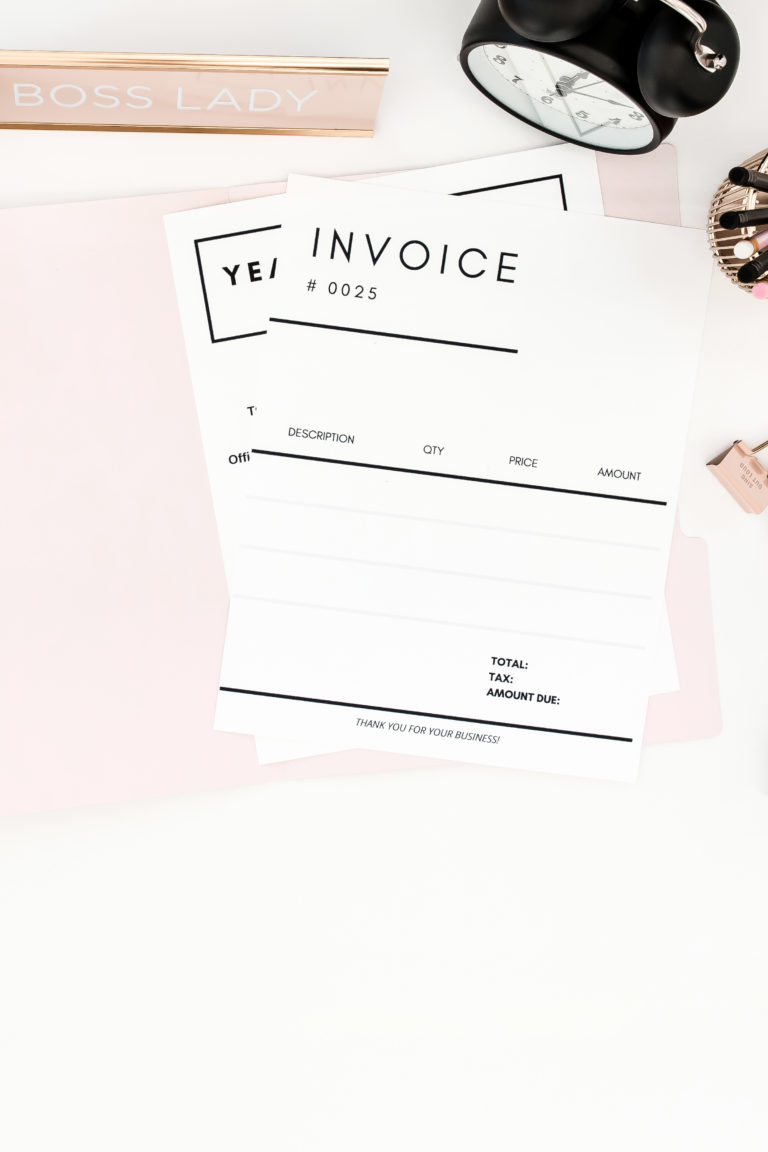Bookkeeping Tips For The Self-Employed
Running a small business? Bookkeeping might be the last thing on your list of priorities which is absolutely a-ok. You don’t need to pour hours upon hours into bookkeeping or, be a numbers aficionado to be across your finances. Working smarter not harder is where it’s at and these tips for the self-employed will help you do just that.

1. Set a routine
Knowing and understanding your numbers is really key to your success. You need to see where you’re growing and where there’s room for improvement. Instead of chucking your numbers down the bottom of your list after client work, customers, and small business happenings, prioritise it.
Open your diary and book the following recurring appointments with yourself:
- Monthly / 1 hour of numbers power: check your income, and expenses and your profitability. If you aren’t making what you want, strategise for a different outcome. Unnecessary expenses too high? Need to raise your prices? Use this time to figure out your best plan of attack.
- Fortnightly / 30-minute pulse check: Have your clients paid your invoices? Do you need to issue reminders? Have YOU paid everything you need to? Is there something coming up? Have you popped aside savings for Tax and/or GST? Schedule it so you don’t miss it! Spend 30 minutes ensuring everything is as it should be.
- Weekly / 15-minute cross-check: Open your business bank account and sift through expenses to check you aren’t being charged twice, the amounts are correct and balance with your records. Record all expenses and store your receipts.
- Daily / 5m check in: receipt payments from your clients, check funds you were expecting have arrived in your bank and pay anything you need to.
A nice robust bookkeeping routine of just three to four hours a month will keep your numbers (and cash) flowing nicely. This doesn’t include big-ticket reports, BAS, employee super and so on. This is just the basics.

2. Stay informed
Like any industry, the numbers game changes quickly so stay ahead of the game and keep informed and up to date with your legal requirements. Here are a few essential sources you can jump on right now:
- Australian Taxation Office Website: for ATO Legislation and changes you need to go to the source. Everything you need to know about super, single touch payroll, PAYG and more can be found here. Jump in their newsroom and choose things that you want to be alerted to.
- Bookkeeping Tips: find a bookkeeper you trust and sign up for their mailing list, follow them on socials and if you’re stuck, book a 1:1 (paid) call with them. While I can’t vouch for ALL bookkeepers, I myself am always happy to help!
- FairWork Website: Pay rates, superannuation, and your legal responsibilities as an employer (if you employ staff!) is a topic you don’t want to mess around with. There’s a heap of information readily available to you on the website or you can book a call with a consultant if you’re unsure.
It’s oh-so-easy to hide but it really pays to be across the ins and outs.

3. Manage your money
I say this all the time but it’s true: if you don’t tell your money where to go, it might get lost along the way. Set up your automatic transfers to cover the big expenses, your wage, the little expenses and your business savings.
A good practice to get into is, allocating your Net Profit (what’s left after all of your expenses). Something a bit like this*:
- 20-30% – put this aside for tax even if you know you won’t have to pay that much it’s wise to cover yourself anyway.
- 20% – pop this aside for business savings so you’re not stuck should your computer die or an unexpected bill comes in.
- 30%-50% – pay yourself a wage.
- Expenses: this varies between businesses but a good idea is to average out your expenses each month and put this aside.
Make your money work for you and the rest will fall into place.
*This is a general guide only and you should use percentages and amounts to suit your circumstances. If you need help, reach out to your professional.
And this should go without saying but record keeping is crucial. Keep your invoices/receipts, (HubDoc is excellent for electronic record keeping!) and ensure your accounting software is up to date.

If you’d like to chat about your business and how the team at Accounted For You can make your money work better, we’d love to chat! Book a call and let’s get you sorted for a smoother ride.







